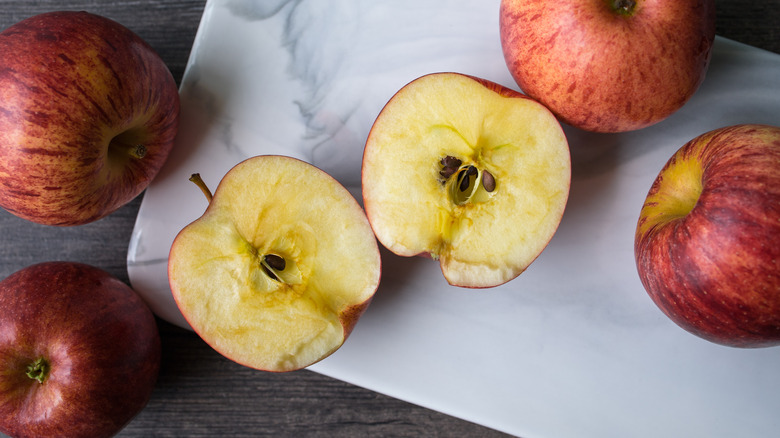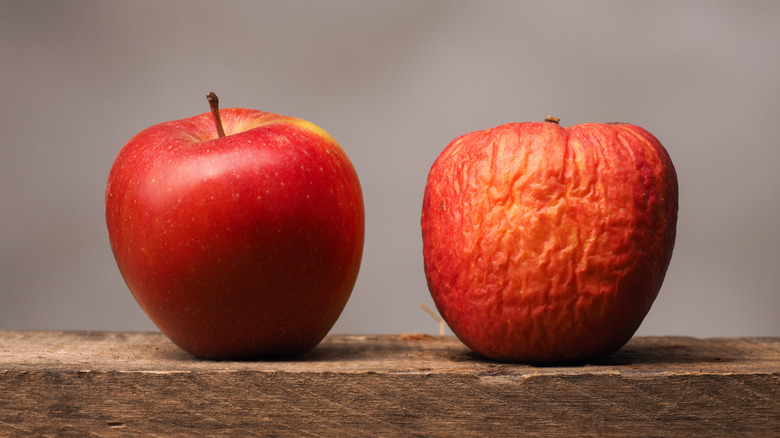A Single Bad Apple Can Ruin The Entire Bunch. Here's Why
Apples are one of the longest-lasting fruits money can buy. According to Allrecipes, apples are several months old by the time they hit grocery store shelves, though you shouldn't be alarmed by the length of time between the orchard and the store. Once you bring them home, they can last months more with proper storage. For example, placing them in the crisper drawer of your refrigerator is key and will buy you weeks more time (via Taste of Home).
Still, like any perishable item, apples don't last forever. They eventually expire, and older apples must be quickly separated from the healthy bunch when that day comes. The phrase "bad apple" is generally used to refer to someone who creates problems, but it turns out that one bad apple truly is a troublemaker to the other fruits around it. Here's why your fresh apples aren't safe if they're near one that's getting too old.
Apples release a gas that can cause other apples to rot
As certain fruits ripen, they release a hormone known as ethylene. According to Mental Floss, ethylene is a gas that triggers the ripening process. As an apple starts to age, it releases ethylene, which causes the other apples around it to age faster. It's like a domino effect.
The riper an apple becomes, the more ethylene it produces. That's why when one bad apple is mixed in with fresher, healthier apples, it can cause those apples to ripen much more quickly. Apples containing mold can spread that mold to the other fruit as well since the mold looks for more food sources as it grows. If you plan to store apples for some time, Taste of Home recommends removing any soft or older-looking ones before storing the apples together. This way, you can prolong the shelf life of all the fruit.

